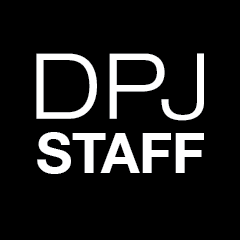DPJ’s Wire series delivers news and information straight from the source without translation.
ACCESS TO CAPITAL, ECONOMIC UNCERTAINTY STILL TOP CONCERNS FOR ARIZONA SMALL BUSINESSES
Phoenix Program Teaches Businesses How to Compete for Cash
Access to capital is tied to small business growth. Though some banks claim an increase in business lending, many small businesses report they are still having difficulty securing funds. In the last few years, small businesses have struggled to find practical, affordable capital to sustain growth and create jobs.
According to a recent report by the National Small Business Association (NSBA), cash flow issues continue to plague a significant number of America’s small businesses. Among the findings: nearly half (43 percent) of small business owners report that they needed funds at one point in the last four years and were unable to find any willing sources.
In a June, J.P. Morgan released survey of the Phoenix Metropolitan Area Small Business economic climate where 49% of small businesses surveyed indicated they thought the economy was getting better (as compared to the national number of 34%). Among those surveyed, 72% said they believed their revenue was expected to increase over the next twelve months. The good news is that in March, the Small Business Administration released its quarterly report showing loans to small businesses have increased for the first time in more than two years, a potential sign that some companies are coming out of the economic recession.
Access to Capital Academy
In its second year, a new effort is under way to help Phoenix-area small business owners gain the knowledge necessary to approach potential lenders with confidence and an increased chance in landing loans. Sponsored by the Phoenix Community Development and Investment Corporation (PCDIC) and facilitated by Stoney-Wilson Business Consulting, the intensive thirteen-week program covers the details of how to approach a lender by having the right documentation, plans and forecasts prepared in exactly the right way to be positioned to get a yes.
The focus of the program is to educate and assist small businesses in acquiring financing for working capital purposes, equipment or real estate. Experts in various areas of the professional community have been enlisted to conduct classroom training, provide workshops and offer one-on-one coaching to assure that each participant is fully prepared to professionally request funding from lenders.

Participants in the 2012 Access to Capital Academy. Photo courtesy of Phoenix Community Development and Investment Corporation.
“Last year our program was very successful with all small businesses getting their financial house in order which naturally made them more attractive to secure that small business loan,” said Kristine Beaird, economic development specialist, PCDIC. “Access to Capital is meant for small and emerging businesses that encounter challenges securing credit that they desperately need to grow. When one starts a new business they oftentimes are faced with running the day-to-day operations and neglect their financial state. We are here to help.”
Though the focus of the program is on securing capital, participants will receive information on all facets of their business, from planning to marketing and sales, to operations.
“Covering all aspects of a business is important because bankers and loan officers look at all facets of a company to make a determination on a loan,” Julie Stoney, partner Stoney-Wilson, whose firm helped craft the curriculum. “What participants found last year is that it’s a lot more complicated than asking for money to grow and add employees; there are many components that lead to a yes and many small business owners have no idea how to get there.”
Jeff Liesner, owner of Phoenix-based Topline Foods was a participant in the 2012 graduating class. He signed up for the Access to Capital Academy because he did not have the basic financial knowledge needed to navigate toward a loan. What he found was not only was he eligible for a loan at the end of the process but he also was taught important business life skills that have grown his business quarter after quarter since graduation.
“The capital academy helped me take my own business plan and really expand on it and incorporate elements that provided me with the knowledge on how to raise capital,” said Liesner. “It seemed like a perfect fit in terms of where my business was at the time and where I wanted to take it.”
This program, is now accepting a limited number of applications. It will run from late August to mid-November 2013. Candidates must live or their businesses be located in the New Markets Tax Credit census tracts (low to moderate income census tracts). Candidates must be in business for at least two years but there is no minimum revenues earned or number of employees. After the initial review of the applications, interviews may be conducted. The new class will meet weekly for 13 weeks. Each company will also be assigned advisors and meet with their advisors as needed. It is estimated that a commitment of at least 12 hours each month is required to be a participant and that only company owners may participate. There will be a graduation ceremony held in November 2013.
Details:
Application deadline: July 19, 2013
Census Tract Eligibility: determined by calling Stoney-Wilson at 602-370-1776
How to apply: www.phoenixnewmarkets.
Class period: August 22, 2013 through November 14, 2013 on Thursday evenings
Time: 3 to 6 p.m.
Cost: $100 fee for participation
For more information, please visit www.phoenixnewmarkets.







